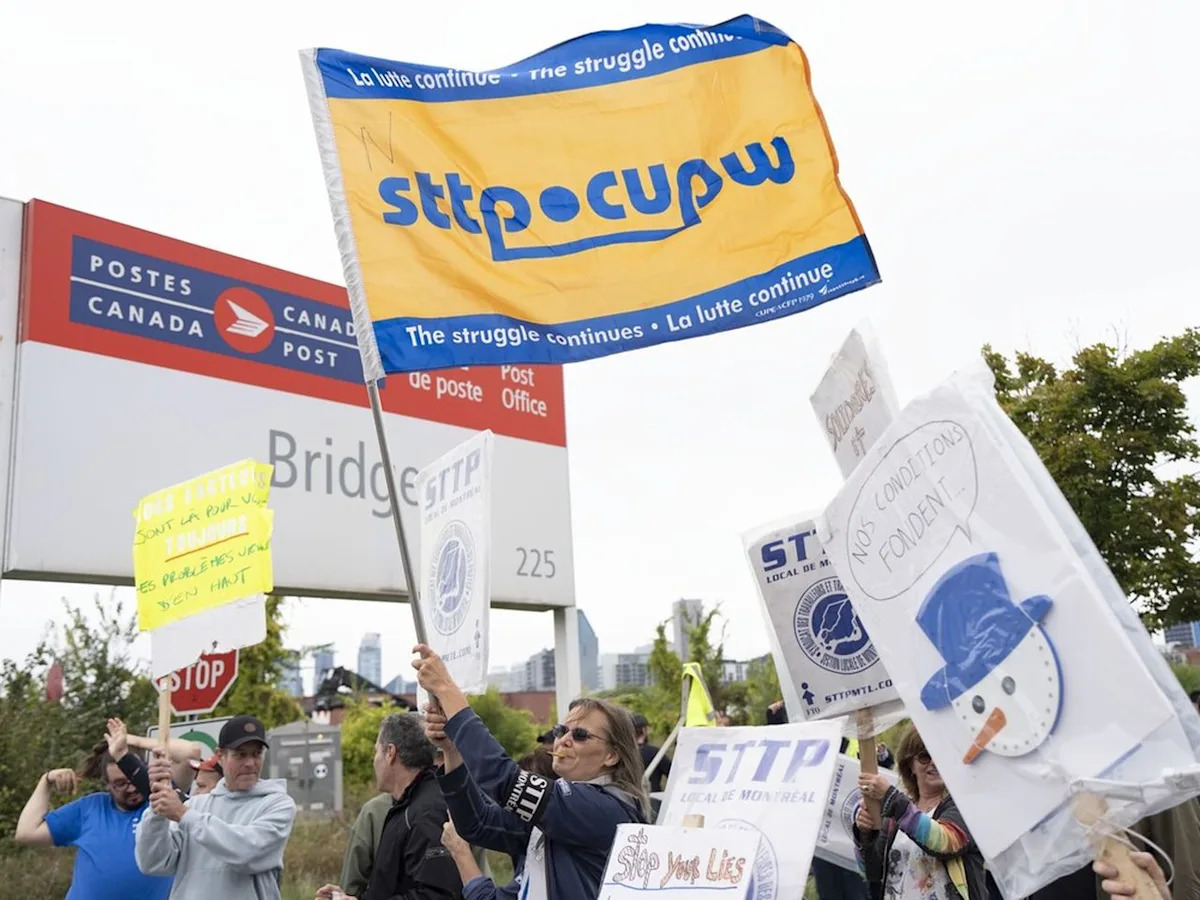Canada Post’s latest global offer is a “major step backwards” in their negotiations, the Canadian Union of Postal Workers (CUPW) announced Friday.
The postal workers’ union launched a strike Sep. 25 after Procurement Minister Joël Lightbound announced door-to-door mail delivery would end within the next decade, as the struggling Crown Corporation looks for ways to cut costs.
“We waited 45 days for offers that are worse than what we rejected in August,” including job cuts and the removal of job security, CUPW president Jan Simpson wrote in the statement.
It’s the second postal strike in under a year, after postal workers walked off Nov. 15, 2024, and were ordered back to work one month later.
Canada Post’s proposals Friday included compounded wage increases of 13.59 per cent over four years, vacation up to seven weeks, health and post-retirement benefits, and a cost of living allowance that protects against unforeseen inflation.
“Due to the company’s deteriorating financial situation, a signing bonus for employees is no longer on the table,” Canada Post wrote in a statement Friday. “Canada Post’s new offers are within the limit of what the Corporation can afford while maintaining good jobs and benefits for employees over the long-term.
Quebec municipal elections and the postal strike
Quebec’s Chief Electoral Officer, Jean-François Blanchet, has granted an exception allowing municipalities to distribute election-related documents through alternative methods during the 2025 municipal elections.
“Postal services are a key part of the electoral process. In the current context, municipalities, which are responsible for organizing their elections, will have to make considerable additional efforts to find other solutions,” Blanchet said in a statement Wednesday. He noted the exception was necessary because of the continuing disruption in postal services.
The two documents voters need that are normally delivered by mail include the notice of registration on the voters list and the reminder card, Élections Québec said.
It suggested municipalities use another delivery service, or call on their staff or a group of volunteers, as examples of alternative delivery methods.
If municipalities with more than 20,000 residents cannot deliver reminder cards to voters’ doorsteps, Élections Québec said they must allow voters to verify their polling place by telephone.
If the strike ends and postal services resume, Élections Québec said the electoral officer’s decision would not prevent municipalities from sending their documents by mail.
But there is no indication the strike will end quickly — in CUPW’s latest statement, they said their negotiating committees “will take the time to thoroughly review and analyze the 500-plus pages of each of the latest offers.”
